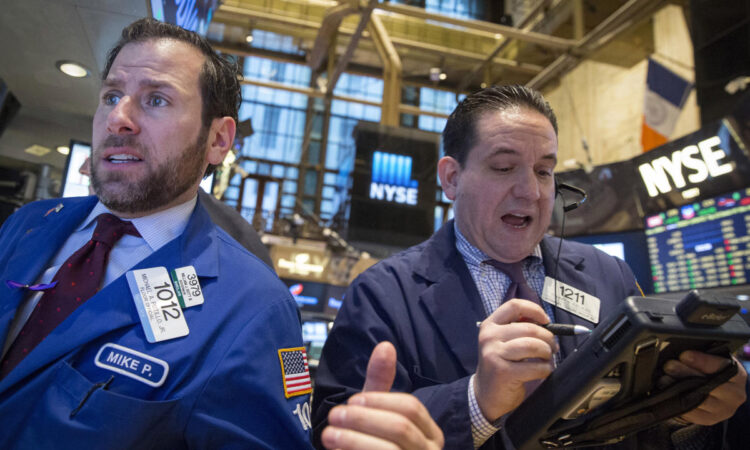
US stocks retreated on Tuesday as investors digested a recent bond-market selloff and braced for the next wave of earnings reports.
The S&P 500 (^GSPC) dropped more than 0.5%. The Dow Jones Industrial Average (^DJI) dropped more than 120 points, or around 0.3%, while the tech-heavy Nasdaq Composite (^IXIC) slid roughly 0.6%.
Stocks are coming under pressure amid growing doubts that the Federal Reserve will continue to cut rates aggressively — or even hold steady in November. Strength in the economy, cautious Fedspeak, and concerns about the fiscal impact of an election win by Republican nominee Donald Trump are factors in play.
Amid the uncertainty, the 10-year Treasury yield (^TNX) steadied around 4.2% after Monday’s sharp gains helped push it above that level for first time since July. The bond selling has weighed on rate-sensitive stocks such as real estate, with rising yields typically a catalyst for stock drawdowns.
On the earnings front, General Motors (GM) raised its guidance for the third time this year as upbeat EV sales helped deliver a quarterly profit and revenue beat. GM shares were up more than 5%. Elsewhere in earnings, GE Aerospace (GE) fell over 7% and Verizon shares fell around 5% on mixed third quarter reports.
At the same time, anticipation is building for earnings from Tesla (TSLA) on Wednesday, as Wall Street debates whether the “Magnificent Seven” tech megacaps will lead stocks’ next leg higher.
Despite higher yields, gold (GC=F) prices rose, on track to reclaim Monday’s record high. The gains came as investors sought safety with the US presidential election looming and Middle East tensions still on the rise.
Live5 updates
-
Markets are debating a higher for longer interest rate stance from the Fed
Treasury yields spiked over the last month amid a slew of stronger-than-expected economic data and signs that inflation’s path down toward the Fed’s 2% goal may take longer than initially hoped.
The data have pushed the 10-year Treasury yield (^TNX) up nearly 50 basis points in the past month to hover near 4.2%, its highest level since July. As our graph below shows, the debate among investors appears to be more about how quickly the Fed will reduce interest rates over the next year, not about whether the central bank will once again cut in November.
As of Tuesday, morning markets are still pricing in a roughly 88% chance the Fed cuts rates at its November meeting, per the CME FedWatch Tool. But by the end of next year, markets now see the Fed likely making one less cut than was priced in on October 4 and two less cuts than markets were projecting on Sep. 18, the day the Fed slashed rates by half a percentage point.
-
-
-
-


